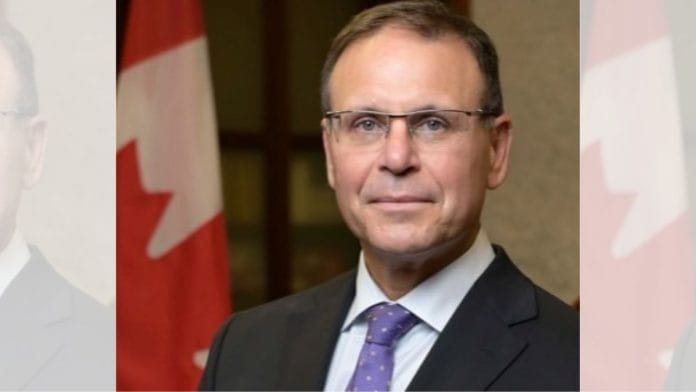New Delhi: Senior Conservative Party of Canada leader and member of the country’s Senate, Leo Housakos Thursday called the terrorist attack in Jammu and Kashmir’s Pahalgam a “massacre of Hindu tourists in India”.
Housakos’s comments mention two elements—’attack on Hindus’ and ‘India’—missing from the statements of his own party leader Pierre Poilievre or Prime Minister Mark Carney.
“The massacre of Hindu tourists in India is not just terrorism—it’s a barbaric assault on faith and humanity. The perpetrators must face swift and uncompromising justice. The world must not stay silent,” he wrote on X.
Housakos, a member of the upper house of Canada’s Parliament—the Senate—since 2009, was co-chair of Poilievre’s leadership bid of the Conservative Party in 2022. He is also a former speaker of the Senate.
On 22 April, at least 25 Indians and one foreign national were shot dead by terrorists armed with AK47 rifles at Baisaran valley in Pahalgam, Jammu and Kashmir’s iconic tourist site. On Wednesday, India announced the existence of cross-border linkages behind the attack, with a range of punitive measures against Pakistan.
Reacting nearly 30 hours after the news of the attack in Pahalgam first broke, Carney wrote on X late Wednesday evening: “I am horrified by the terrorist attack in Jammu and Kashmir, a senseless and shocking act of violence that has killed and injured innocent civilians and tourists. Canada strongly condemns this terrorist attack. We offer our condolences to the victims and their families.”
The Canadian prime minister was the last of the leaders of the G7 (Group of Seven) nations to convey condolences. However, his statement made no mention of standing in solidarity with India, a stance which is different from Ottawa’s allies.
Similarly, Poilievre’s statement, which had come a couple of hours ahead of Carney’s, made no such mention. “I condemn in the strongest terms the horrific terrorist attack in Jammu and Kashmir that took the lives of innocent civilians, including tourists and families. Our hearts are with the victims, their loved ones, and all those affected. Canada stands united against terror in all its forms,” he wrote on X.
The condemnation from the leaders of two of the largest parties in Canada, with no mention of India, is important to note, given that the North American nation is gearing up for its own federal elections on 28 April, which highlight a close race between the Liberals and the Conservatives.
Both the leaders are looking to gain votes from a number of voting groups, including Sikh separatists. The Liberals have a slight lead of about four percentage points in the opinion polls, according to 338Canada, a political forecasting project.
Every party in Canada relies on the actively organised Sikh extremist groups present in the country for their politics, author Terry Milewski told ThePrint last year.
The current scenario, with elections barely days away, could be indicative of why both Carney and Poilievre demurred from directly mentioning India in their statements.
Furthermore, ties between New Delhi and Ottawa have hit a nadir over the killing of Hardeep Singh Nijjar.
Nijjar, an Indian-designated terrorist, was gunned down outside a gurdwara in Surrey, British Columbia in June 2023. Three months later, the then Canadian prime minister Justin Trudeau had alleged links between Indian government officials and the killing.
New Delhi rejected the allegations, calling them “absurd and motivated”. Nevertheless, ties were downgraded, with India calling for “parity” on the strength of missions, which led to the exodus of a number of Canadian diplomats from the country. A year later, in October 2024, India withdrew its High Commissioner from Ottawa, along with five other diplomats and expelled six Canadian diplomats, including its High Commissioner.
Ties have since remained strained between the two countries, especially given the perception in New Delhi that Ottawa refuses to act against Sikh separatists based in the North American country. In the last couple of years, a number of Hindu temples have been vandalised in Canada, while Indian diplomats have faced threats from Sikh separatists, while carrying out their official duties.
Most recently, earlier this week, a temple and a gurudwara in Canada was vandalised allegedly by Sikh separatists. A Hindu temple in Surrey was defaced with spray-paint, while the Ross Street gurdwara in Vancouver was vandalised allegedly by Sikh separatists.
(Edited by Mannat Chugh)
Also Read: Canada condemns Pahalgam terror attack nearly 30 hours later, last G7 country to do so






